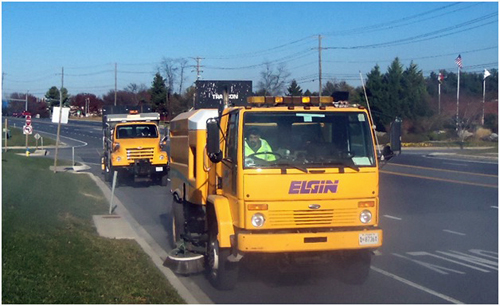Road Sweeping & Ditch/Culvert Cleanings
It doesn't come to mind immediately but keeping debris off our roads and out of ditches and culverts has a profound impact on the number of pollutants entering the Chesapeake Bay watershed. Maryland Department of Transportation State Highway Administration (MDOT SHA) preventive maintenance programs, such as sweeping, maintaining grass swales and installing stormwater management ponds, minimize the accumulation of debris throughout the year and support Maryland’s commitment to the Chesapeake Bay Protection and Restoration Executive Order and to the Total Maximum Daily Loads (TMDL) established under
Section 303(d) of the Clean Water Act. (TMDL is a calculation of the maximum amount of a pollutant that a body of water can receive daily and still safely meet water quality standards.)
Routine ditch and culvert cleaning (and maintenance) assures proper water flow, protects structures and lessens the likelihood of flooding. In many cases, special care is taken to prevent erosion and sediment damage, as well as protect aquatic life in streams and rivers.
Roadway debris (dirt, small rocks, and greasy residues) can interfere with the drainage of storm water, letting pollutants enter Maryland waters. In addition, debris can become airborne – a potential safety threat for motorists, pedestrians and bicyclists. MDOT SHA sweeps sections of roadway along curbs to minimize debris.

Sweeper Truck: Frederick County